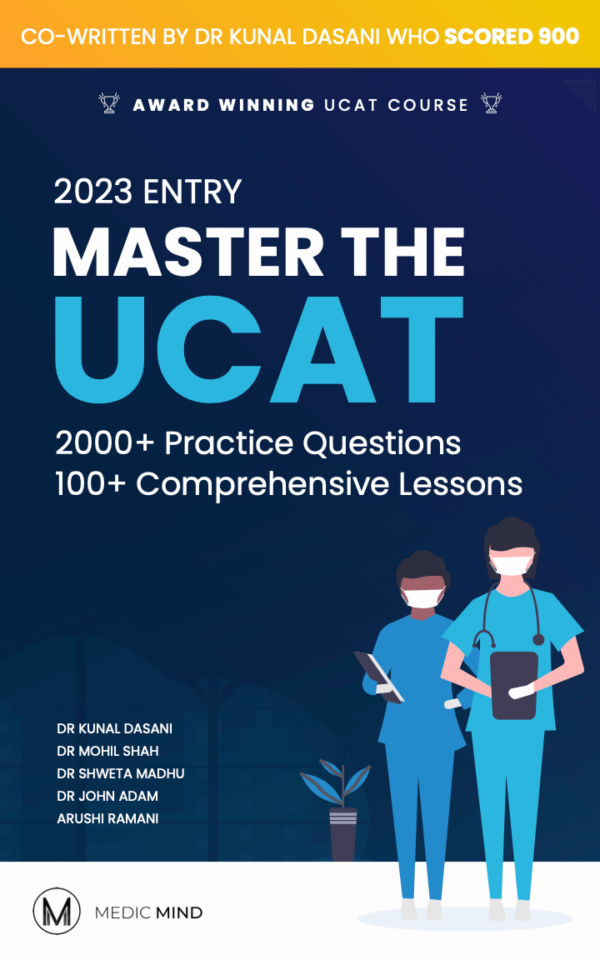Loading...

What A Levels are Required for Medicine?
Applying to medical school in the UK is a highly competitive process, and admission requirements can be quite stringent. If you’re considering a career in medicine, you’ve likely already started to think about the A Levels you need to take to apply for medical school.
In the UK, there are specific A Level requirements that you must meet if you want to study medicine. In this article, we will explore the A Level requirements for medicine and highlight the subjects that are favoured, as well as provide a list of schools and their subject requirements.
What A Level subjects are required for medicine?
Before diving into the details, it’s important to note that there is no set formula for getting into medical school. Each medical school has specific requirements, so it’s important to research the schools you’re interested in and find out their A Level requirements. That being said, there are some general A Level requirements that most medical schools will look for.
Most medical schools in the UK require a minimum of three A Levels, with some schools requiring four. The required grades can vary between schools, but applicants will typically need at least three A grades, with some schools specifying which subjects should be taken at A Level.
A Level Chemistry is deemed necessary by 24 Medical Schools, while 13 of them require both A Level Biology and A Level Chemistry. These include:
- Aston
- Birmingham
- Brighton & Sussex
- Cardiff
- Edge Hill
- Exeter
- Hull York
- Imperial
- King’s College London
- Lincoln
- Nottingham
- St George’s
- UCL

If Biology is not taken, approximately 19 medical schools are open to considering applications with A Level Chemistry and either Physics or Maths as the second subject. Some of these are:
- Aberdeen
- Bristol
- Cambridge
- Dundee
- Edinburgh
- Glasgow
- Liverpool
- Oxford
- Queen’s Belfast
- St Andrews
- UCLan
For roughly 16 Medical Schools, Chemistry A Level is not mandatory, and they may consider applicants with Biology and another science subject or Maths. Some of these are:
- Buckingham
- Leeds
- Norwich (UEA)
- Anglia Ruskin
- Barts
- Brunel
- Sunderland
- Kent Medway – if you didn’t take both Chemistry and Biology for A Level, you’d be advised to take Physics, Maths, Psychology, or Computer Science
- Lancaster – allows you to apply with Chemistry, Biology, or Psychology
- Newcastle – though there are no specific subject requirements, they don’t consider certain subjects, i.e., General Studies, Use of Mathematics, World Development, Communication and Culture, or Critical Thinking
Additionally, 8 medical schools accept Psychology as a second science subject. These include Keele, Leicester, Manchester, and Sheffield, to name a few.
Regarding the third A Level subject, most medical schools do not specify any preference. However, Cambridge notes that many applicants have A Level Chemistry along with two of the following: Biology, Physics, or Maths.
In contrast, Brighton & Sussex welcomes applicants who choose a third subject outside of Science or Maths, as these subjects are believed to expand academic horizons.
The best way to find out what specific grades and subjects each school requires is to check their entry requirements. However, there are a few subjects that are generally favoured by most medical schools, and we will explore those in more detail below.

Subjects favoured by medical schools
A Level Biology
Biology is an essential subject for anyone looking to study medicine. It is a fundamental part of the curriculum for most medical degrees and is therefore highly valued by medical schools. Many medical schools require applicants to have a good understanding of biology, and some universities even specify that a minimum of two A Levels should be in biology and chemistry.
A Level Chemistry
Chemistry is also a core subject for medical school applicants. It is a crucial part of the medical curriculum and is essential for understanding the scientific basis of medical treatments. Chemistry is also a favoured subject because it is a good indicator of a student’s ability to think critically and solve complex problems, which are important skills for a career in medicine.
A Level Mathematics
While not as essential as biology and chemistry, mathematics is still a favoured subject for medical school applicants. Mathematics is useful for medical students because it helps develop analytical and problem-solving skills. Many medical schools will require students to have a good understanding of mathematics and may even ask for specific grades in the subject.
A Level Physics
Physics is not always a required subject for medical school, but it is still valuable. Physics helps students understand the scientific principles that underpin medical treatments and can be particularly helpful for those interested in areas such as radiology or medical physics.
A Level Subjects You Should Avoid!
It’s important to steer clear of certain A Level subjects if you’re considering applying to Medical School. General Studies, Critical Thinking, Citizenship Studies, and Global Perspectives are generally not accepted by most Medical Schools.
These subjects are often seen as ‘soft’ subjects and do not provide the same level of academic rigour as other A Level subjects. It’s important to research the specific requirements of the medical schools you’re interested in and ensure that you meet their A Level requirements.
In addition, it’s worth noting that subjects that have overlapping content may not be accepted or may only be counted as one subject. Examples of such subjects include Maths and Further Maths or Biology and Human Biology.
It is also worth noting that grades are not the only factor medical schools consider when assessing applications. Other factors that may be taken into account include work experience in a healthcare setting, extracurricular activities, and personal statements. It is important for students to have a well-rounded application and to showcase their passion for medicine in various ways.
While there is a plethora of information available on the A-level entry requirements for studying Medicine, the overarching message is unambiguous: A level Chemistry is a mandatory subject, and Biology, Physics, and Maths should be selected as the other three options if you are confident in achieving top grades on four A-levels. However, if you are unable to do so, note that Oxford and Cambridge tend to favour students who excel in three relevant subjects rather than struggle across four.
FAQs
While most medical schools prefer applicants to have a third A Level in a science subject, some schools may accept a non-science subject that demonstrates academic excellence, such as English or a foreign language.
Most medical schools do not require students to take four A Levels, but some may prefer it. If you decide to take four A-levels, it is recommended to choose a combination of Chemistry, Biology, Physics, and Maths.
It is possible to apply to medical school without meeting specific A Level requirements, but this may limit the number of schools that you can apply to. Some medical schools may consider alternative qualifications or offer foundation courses to help you meet their requirements.
Yes, many students take a gap year before applying to medical school to gain work experience, travel, or pursue other interests. However, it is important to check the requirements of each school as some may have a time limit on A Level grades.
Different medical schools have different entry requirements. Most require A/A* grades in Chemistry and at least one other science subject, and many have additional requirements for the third subject. It is important to check the specific requirements of each school that you are interested in.
Check out our related blogs:
Support for the whole medical application process from UCAS application, UCAT/BMAT, personal statement, interview and more!
With over 1000 UCAT questions, mock paper walkthroughs and timing tips and advice
A unique opportunity to explore the world of healthcare through interactive simulations and real-life case studies. Run by senior physicians
Personalised private lessons, tailored to your UCAT needs





Was this article helpful?
Still got a question? Leave a comment
Leave a comment
366 Comments
AnonymousMedic Mind Tutor
13 January 2024
Can I do A-levels Biology, Chemistry and Computer science and still study medicine in Oxbridge?